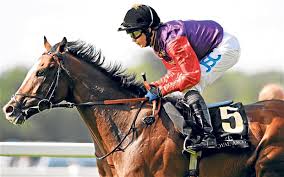记忆方法
将“jockey”和“jockey”赛马的形象联系起来,想象骑手(jockey)骑在赛马上,灵活敏捷地保持平衡,从而记忆“jockey”的含义是骑手。
以上内容由AI生成, 仅供参考和借鉴
中文词源
jockey 赛马骑师,欺诈,耍花招
来自常见人名Jock昵称,用来称呼普通人或不认识的小伙。后用于指骑马送信的信使,引申词义赛马骑师,同时,也用于指马匹交易商,即horse-dealer,因这一职业存在许多欺骗行为,干这一行的人名声通常都不太好,引申词义欺诈,耍花招等。
英语词源
- jockey (n.)
- 1520s, "boy, fellow," originally a Scottish proper name, variant of Jack. The meaning "person who rides horses in races" first attested 1660s.
- jockey (v.)
- 1708, "trick, outwit, gain advantage," from jockey (n.) perhaps from its former additional sense of "horse trader" (1680s). Meaning "to ride a horse in a race" is from 1767. Related: Jockeyed; jockeying.
权威例句
- 1. The jockey said he tended to flick horses with the whip.
- 骑手说他经常会用鞭子抽马。
- 2. Alexander is a famous jockey.
- 亚历山大是著名的职业赛马骑师.
- 3. The jockey rushed back from America to ride at Nottingham on Monday but went unrewarded.
- 那位职业赛马骑师周一从美国赶回诺丁汉参加比赛,但是一无所获。
- 4. The jockey was shaken up when he was thrown twice from his horse yesterday.
- 昨天赛马骑师两次从马背上被摔下来,受惊了。
- 5. Although favorite to win the race, the champion jockey had an off day and was unplaced.
- 虽然那位第一流的职业骑手最有希望赢得比赛的胜利, 但他的身体感到不舒服,结果未得名次.
